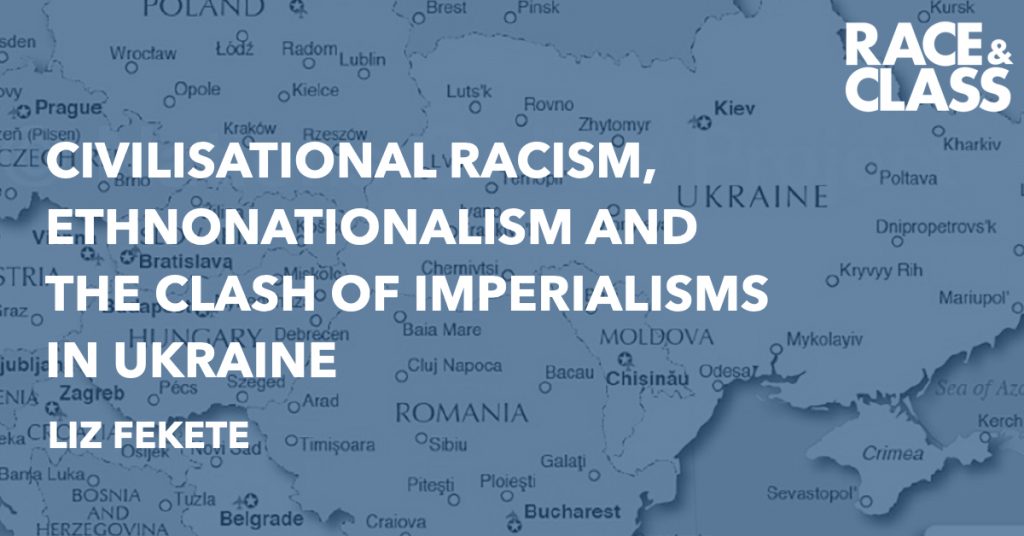As rallies take place across Europe to mark the first anniversary of the Russian invasion of Ukraine and calls for a peace process to end the conflict grow, Liz Fekete, a leading expert on European racism, pinpoints the need to examine how new geopolitics, changing imperialisms and the entrenching of a racism built on a 19th century-style civilisational hierarchy and revanchist nationalisms are emerging in the fall-out of the war.
This is one of the first attempts to analyse the consequences of the war from an anti-racist, internationalist viewpoint. Fekete believes that while civilisational frameworks have reached fever pitch in Russia, civilisational hierarchies are also becoming entrenched in policy circles in Europe. She uses the term civilisational racism to denote the hierarchical arrangement of nations ranked according to adherence to western values which updates the 19th century colonial discourse around the hierarchy of superior and inferior races.[1]
Eurocentrism is most obvious in the hierarchies that now exists in terms of Europe’s response to the 23 wars currently raging around the world, as well as the refugees these wars create. Civilisational racism has been manifest in the marking out of non-ethnic Ukrainians – such as Roma and African students fleeing Ukraine. Civilisational hierarchies persist at every stage of the asylum process and at the two-tier border regime in countries like Poland. Welcome though the use of the Temporary Protection Directive for Ukrainian refugees is, this 2001 legislation could have been used before for Syrian refugees, for example.
As the EU seeks to build a consensus in favour of further militarisation of the conflict, there is silence about the dangers posed by right-wing ethnic nationalism and historical revisionism in central and eastern Europe and the Baltic States. This is particularly worrying as nationalist leaders in many of these countries are pursuing ethnic policies and culture wars over history and remembrance of their role in the Holocaust, even as they demand that power in the EU shifts eastwards.
Fekete shows that in the rush to build a consensus around additional arming of Ukraine, in the face of a narrative that Russia is the sole imperial power, there has been a reluctance to report on criticism of EU policies coming from the Global South. We have to acknowledge that today we live in a complex system of competing imperialisms, not just one. Since many countries have had recent experience of western imperialism, the EU’s blind-spot allows Putin (even as he attempts to ‘recolonise’ Ukraine) to present himself as the global leader against western colonialism, standing in solidarity with demands from the South to complete the process of decolonisation.
‘What this conflict has thrown up’, concludes Liz Fekete, ‘is new geopolitics which challenges us to address the consequences of civilisational racism. In Europe and North America, radical internationalists and anti-racists have, by and large, been unable to break through a highly emotive pro-war discourse in ways that could amplify the perspectives emanating from the Global South. This urgently needs to change.’
Liz Fekete is author of Europe’s Faultline: racism and the Rise of the Right and Advisory Editor on Race & Class and has served on a number of international tribunals on human rights violations.

